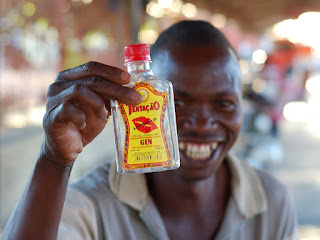Moza is''powder keg''
Raul Domingos, Rome peace agreements negotiator and former number two in Renamo, believes that, a year after the signing of the Cessation of Military Hostilities Agreement between the government and the main opposition party, Mozambique is “sitting on a powder keg”.
"One does not need to hold up a magnifying glass or be a political analyst to see what is clear: peace in Mozambique cannot be taken for granted, and the country is sitting on a powder keg," Domingos, who is currently president of the extra-parliamentary Party for Peace, Democracy and Development (PDD), said in an interview with Lusa.
According to the politician, the negotiations which led to the signing of the Agreement on Cessation of Armed Hostilities on September 5, 2014, were an opportunity missed for securing a lasting understanding of peace in the country.
"They were fruitless negotiations, because the reasons that led to the conflict between 2013 and 2014 still prevail, in particular the lack of electoral legitimacy of political institutions and the fact of having a one-party state and two armed parties," Domingos notes, referring to Renamo and Frelimo (the ruling party).
Domingos thinks the negotiations between the government and Renamo should have been used to rethink the political system and deepen local government processes as a way of easing the tension in the political situation.
"The elections have been showing that there is an important sector of the electorate voting for the opposition that does not feel represented in political institutions, because the current Mozambican political system is based on the principle that 'the winner takes all`, and that situation could be solved by returning power to the provinces,” he said.
In Domingos’ opinion, the definitive stabilization of Mozambique is also being hampered by the fact that the current head of state, Filipe Nyusi, has been "drifting" because of having to manage several groups fighting for power within Frelimo.
In Domingos’ opinion, "He is a new head of state in a Frelimo machine with all the vices of 40 years of one-party rule and with two or three groups fighting among themselves for power. He is adrift, as can be seen in the inconsistency of his positions."
The president of PDD believes that the Cessation of Military Hostilities Agreement was only reached for convenience, because the president at the time, Armando Guebuza, wanted to give the impression that he had left office with the country at peace.
"Many advances that had eluded negotiators for months were achieved at meteoric speed as a result of pressure from a president who was leaving office, and needed to give legitimacy to the elections that were already about to take place," Domingos says.
Tomorrow, Saturday, is the first anniversary of the signing of the Cessation of Military Hostilities Agreement, ending a year of clashes between the defence and security forces of Mozambique and the armed wing of Renamo. However, the agreement failed its main goal: the demilitarization of Renamo.
Under the agreement, amnesty for crimes against state security committed during the period of the political tension was approved, a Mission Team of Observers of the Cessation of Armed Hostilities (EMOCHM) was created\ and an agreement on separation between party and state was reached. EMOCHM has since been dissolved and the party-state separation agreement has not yet been implemented, due to the refusal of the Government to submit the document to parliament along with Renamo.
Raul Domingos was a member of Renamo during the 16-year civil war that opposed Renamo against the government of Frelimo. He headed the delegation of the main opposition party in the negotiations that finally reached the Rome Agreements ending the conflict on October 4 1992.
Domingos was expelled from Renamo in July 2000 because of disagreements with the president of the movement, Afonso Dhlakama, at a time when he was considered the party’s number two and Dhalakama’s potential successor in the party leadership.
